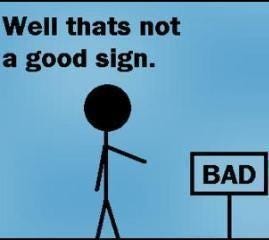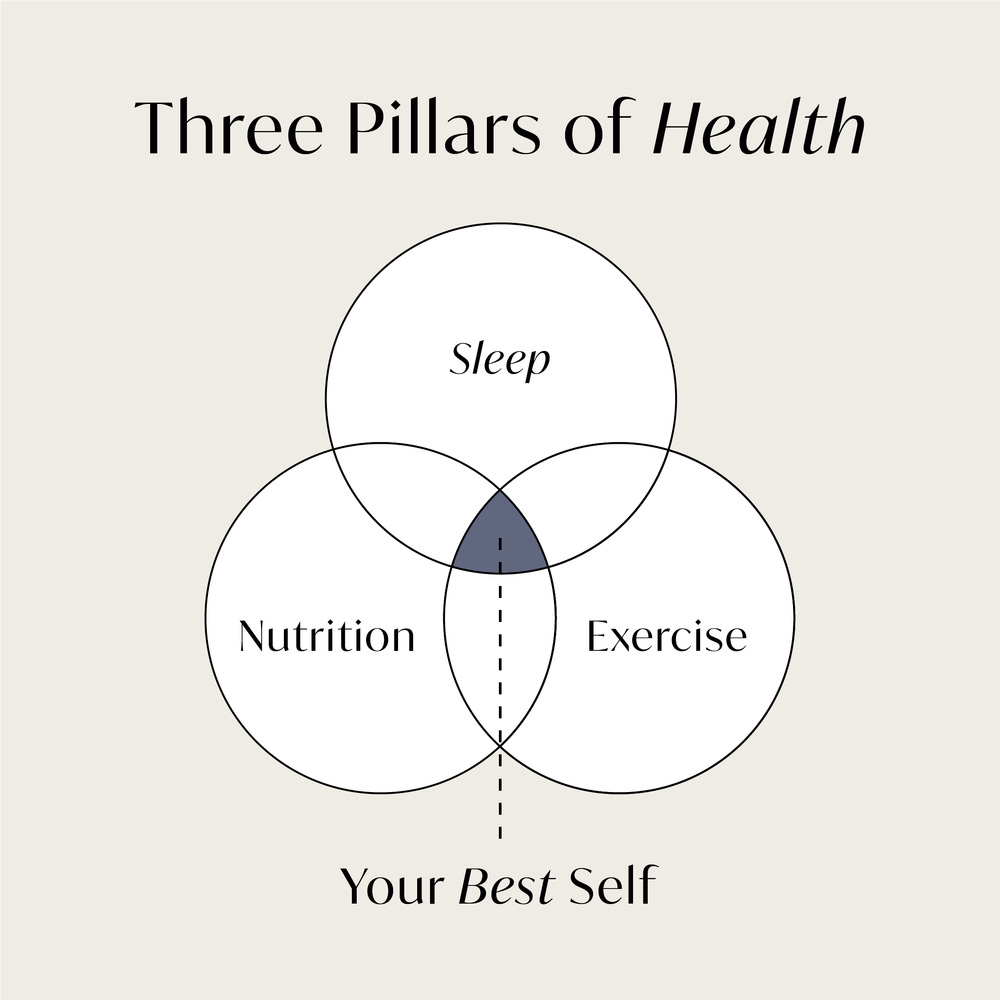Why We Need to Take Health Seriously Before It's an Emergency
Understanding Preventive Health and How Small Lifestyle Changes Can Make a Big Difference
Hope you’re doing well friends ! We’re now growing to 35 readers, and without any ad. If you want to support, please share it with at least 1 friend 🫶
What you’ll read today
Preventive health is often seen as not a priority until… it becomes one
Today’s lifestyle is paradoxically unhealthy, with stress, screen time, and productivity pressures overwhelming preventive habits
Simple, daily health practices can make a significant difference and help avoid preventable crises
Now let’s dive into today’s post 👇
Reading time = 4 minutes
Why We Need to Take Health Seriously Before It’s an Emergency
Imagine this: You’re in your 40s, sitting in a doctor’s office, facing a diagnosis you never expected.
This is the moment you realize that the daily fatigue, headaches, and sluggish mornings weren’t just part of life—they were warnings.
By then, you’re deep into the problem-solving stage, not the prevention stage.
This is what happens to countless people who delay prioritizing their health.
But why wait until it’s an emergency?
Don’t Ignore The Signs
We live in a culture that glorifies being busy.
Health becomes an afterthought until something forces you to rethink everything. I think about my friend Hendrik (name changed).
Hendrik was a co-worker who had absolutely no healthy habits. Despite working like any regular guy in the office, he often joked about his late nights, whether spent gaming or going out with friends.
He fueled himself with coffee and energy drinks and believed his ability to thrive on just five hours of sleep was a superpower.
Skipping meals or working through lunch breaks was normal for him, and squeezing in a quick snack at his desk counted as a “break.”
It was just how Hendrik operated, and for a while, it seemed to work.
But then, things began to change.
Hendrik started to send out doctor’s notes to be on sick leave. At first, it was a day or two for what he said were “stomach bugs” or “bad headaches.”
But soon, those short absences turned into a week here, a week there.
Finally, after a 3-month absence, Hendrik shared that he’d been dealing with stress-induced high blood pressure and chronic fatigue.
The warning signs had been there all along, but he ignored them until his body made him pay attention.
Andrew Huberman, a neuroscientist and popular wellness expert, would say that these subtle signs are your body’s way of asking for attention
The daily brain fog.
The poor sleep.
These are indicators.
Huberman says that small and consistent choices like regular sleep, morning sunlight, and physical activity compound over time.
These aren’t just “nice-to-haves”; they’re essential for preventing the Hendriks in our lives from ending up in emergency care.
The Paradigm of Today’s Lifestyle
Today’s lifestyle feels paradoxically advanced yet unhealthy.
Technology has made life easier, yet most of us move less, stare at screens more, and stress endlessly.
We have better tools to manage our time but choose to cram them with more tasks. It’s easy to prioritize deadlines over downtime until our bodies stage a revolt.
Brian Johnson, the biohacker behind the Blueprint project, learned this lesson firsthand. Johnson built his career around optimization and peak productivity, only to realize that pushing his body beyond its limits was costing him long-term well-being.
He turned his focus to preventive measures—structuring his life around rest, nutrition, and consistent exercise.
Why We Don’t Take It Seriously
Social Stigmas Around Health Prioritization
In many places, including parts of France, there’s an unspoken stigma around focusing too much on health.
Taking time for self-care, especially preventive care, is sometimes seen as indulgent or “not cool”.
'“You don’t drink tonight? You’re not cool”
Research highlights that in cultures where productivity and resilience are prized, taking preventive measures can be viewed as weakness or excessive self-focus.
Perception of Cost and Accessibility
In countries like the U.S., there’s a widespread belief that preventive health is only for the privileged.
Regular check-ups, gym memberships, organic foods, and wellness practices can seem out of reach for people who are managing tight budgets.
Even though preventive measures as simple as walking, basic home workouts, or hydration don’t cost much, the perception that “true” wellness requires money persists.
Lack of Immediate Rewards
Preventive health operates on delayed gratification.
But we live in a TikTok or Instagram culture.
The benefits of maintaining a consistent health routine aren’t immediately visible, and most of us prefer to dumb scroll because we lack self control: humans are wired to respond to short-term benefits rather than long-term payoffs.
Time Constraints and Priorities
The fast-paced nature of modern life makes people feel like there’s no time for preventive health.
A report by the American Psychological Association highlighted that many adults skip regular exercise or don’t prioritize sleep simply because they feel too busy.
The misconception that taking time for self-care will hinder productivity can discourage preventive practices.
But failing to invest time in health leads to breakdowns that cost even more time in the long run.
It’s time to change the way healthcare or wellness have been done.
Companies like superpower, function health etc… are leading the way. I’m actually going to California to meet industry experts and entrepreneurs from November 19 to December 11 and bring back to Europe ideas to change the way healthcare is approached - it’s time to change an industry that’s been slowly moving compared to others.
Quick Actionable Tips (everyday!)
Preventive health starts with seeing self-care not as indulgence but as necessity. Even small shifts can make a big impact:
Move: at least 30 minutes a day.
Sleep: 7 to 9 hours per day, with dimmed lights and a set bedtime
Eat Whole Foods: get your proteine and your greens, drink enough water
Stay Informed: Follow experts like Huberman and Johnson for practical tips that could help your daily life. It’s not rocket science after all.
That’s it for today !
If this post can help someone from your network, share it:
If you have any ideas on how to improve the format/writing or if you want to connect, drop me a message on Linkedin
👉 See you in two weeks !





